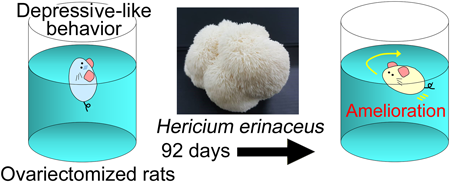- J-STAGE home
- /
- Biological and Pharmaceutical ...
- /
- Volume 45 (2022) Issue 10
- /
- Article overview
-
Azliza Mad Anuar
Department of Biochemistry, School of Pharmaceutical Sciences, University of Shizuoka
-
Akira Minami
Corresponding author
Department of Biochemistry, School of Pharmaceutical Sciences, University of Shizuoka
-
Hiroshi Matsushita
Department of Obstetrics and Gynecology, School of Medicine, Aichi Medical University
-
Kanako Ogino
Department of Biochemistry, School of Pharmaceutical Sciences, University of Shizuoka
-
Kosei Fujita
Department of Biochemistry, School of Pharmaceutical Sciences, University of Shizuoka
-
Hatsune Nakao
Department of Biochemistry, School of Pharmaceutical Sciences, University of Shizuoka
-
Shota Kimura
Department of Biochemistry, School of Pharmaceutical Sciences, University of Shizuoka
-
Vikineswary Sabaratnam
Mushroom Research Centre, University of Malaya Institute of Biological Sciences, Faculty of Science, University of Malaya
-
Kaoru Umehara
Faculty of Pharmaceutical Sciences, Yokohama University of Pharmacy
-
Yuuki Kurebayashi
Department of Biochemistry, School of Pharmaceutical Sciences, University of Shizuoka
-
Tadanobu Takahashi
Department of Biochemistry, School of Pharmaceutical Sciences, University of Shizuoka
-
Hiroaki Kanazawa
Toyota Nursing College
-
Akihiko Wakatsuki
Department of Obstetrics and Gynecology, School of Medicine, Aichi Medical University
-
Takashi Suzuki
Department of Biochemistry, School of Pharmaceutical Sciences, University of Shizuoka
-
Hideyuki Takeuchi
Department of Biochemistry, School of Pharmaceutical Sciences, University of Shizuoka
Supplementary material
2022 Volume 45 Issue 10 Pages 1438-1443
- Published: October 01, 2022 Received: March 08, 2022 Released on J-STAGE: October 01, 2022 Accepted: July 13, 2022 Advance online publication: - Revised: -
(compatible with EndNote, Reference Manager, ProCite, RefWorks)
(compatible with BibDesk, LaTeX)


